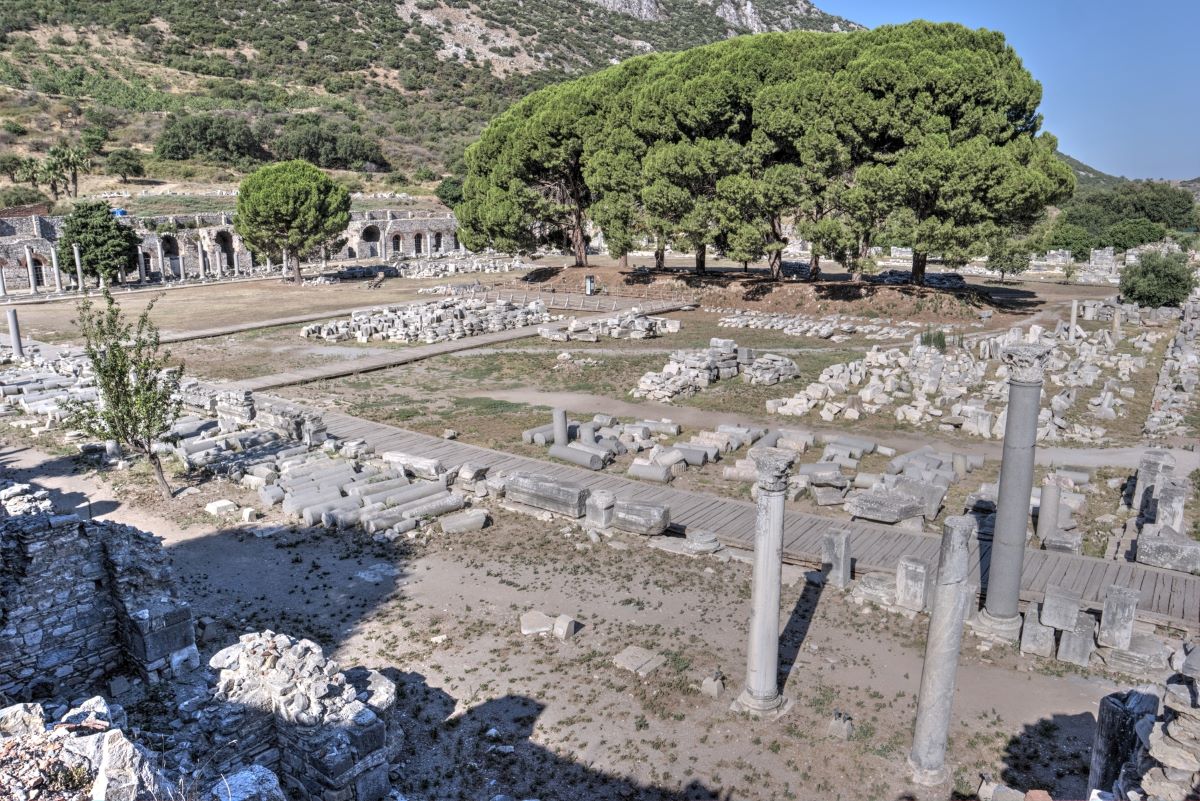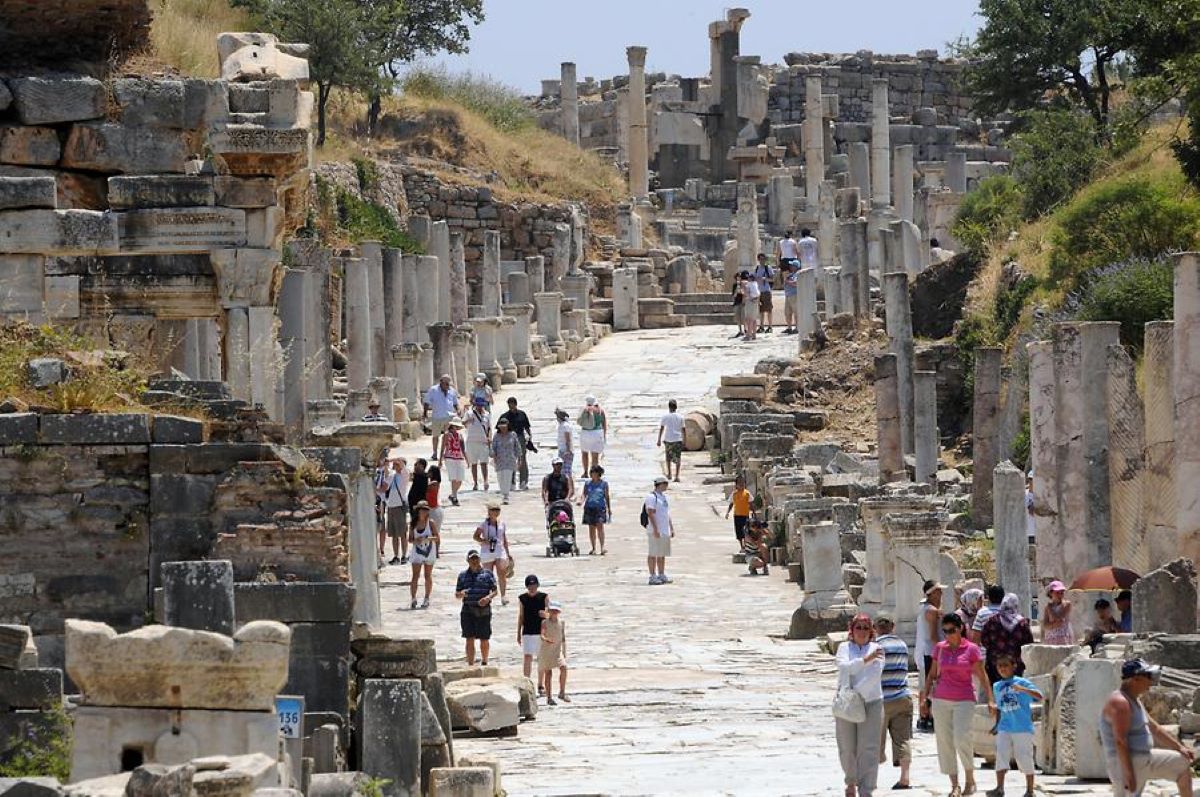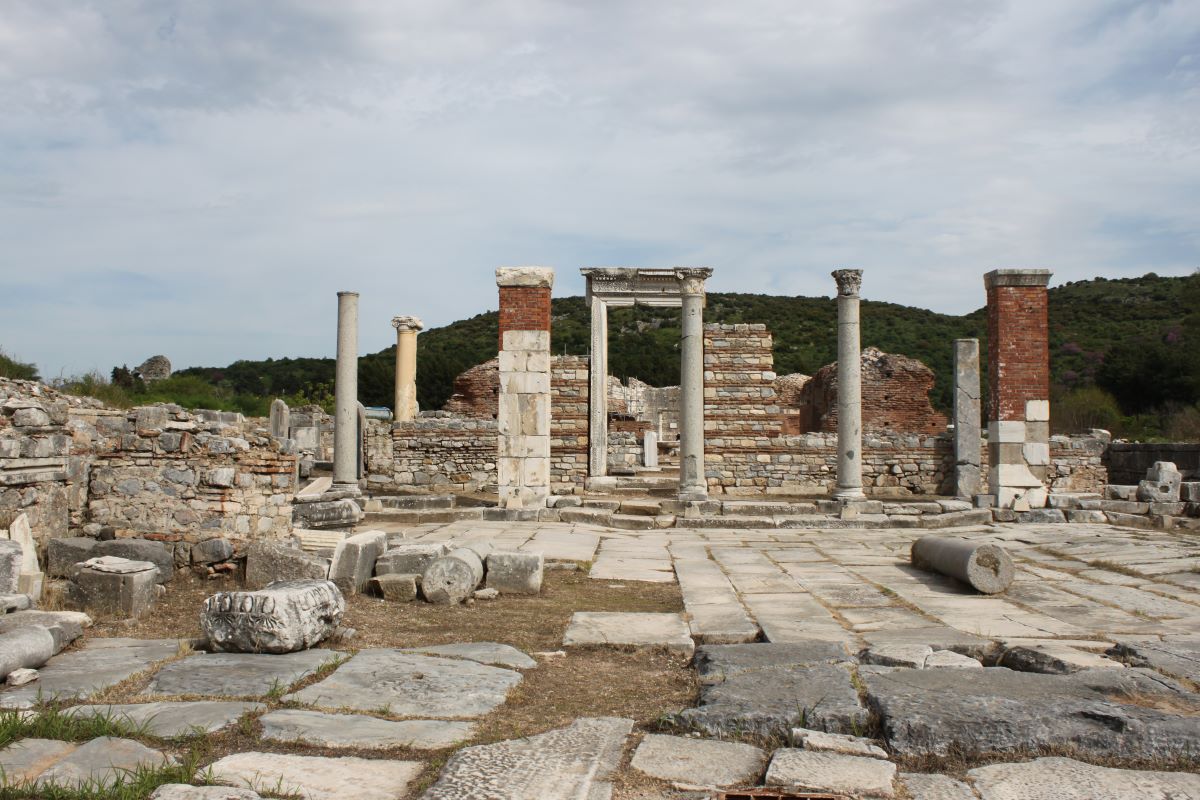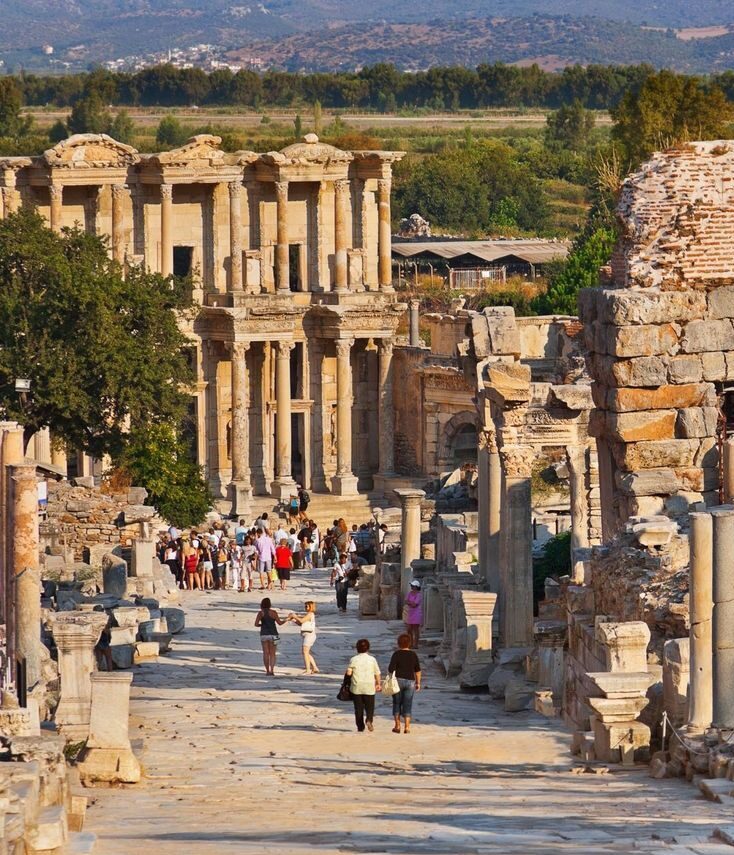The ancient city of Ephesus is a site of remarkable historical significance, with a…

Markets of Ephesus: Economic, Social, and Cultural Hubs of a Cosmopolitan City
Ephesus was renowned for its diverse and vibrant markets that served as the lifeblood of trade and commerce in the city. These markets were not only economic hubs but also social and cultural centers that shaped the city’s fabric.
The Agora
The Agora was a large public square located in the heart of Ephesus, serving as the city’s main commercial and social center. It was a bustling marketplace where merchants and buyers gathered to trade various goods and commodities. The Agora housed a variety of shops and stalls selling a wide range of products, including food, clothing, pottery, and household items. It was also a place where business deals were made, contracts were signed, and transactions were recorded. The Agora played a crucial role in facilitating trade and commerce in Ephesus by providing a central location for merchants and buyers to interact and conduct business.
The Celsus Library
The Celsus Library was a magnificent Roman library located in Ephesus, known for its impressive architecture and rich collection of books. However, it was not just a library but also a unique blend of commerce and culture. The library’s facade housed shops and stalls that sold various goods, including books, scrolls, and luxury items. The Celsus Library served as a hub for intellectual discourse, cultural exchange, and commercial activity, making it a prominent center for trade and commerce in Ephesus.
The Harbor Market
The Harbor Market was located near the port of Ephesus, and it was a bustling hub for maritime trade. As Ephesus was a prominent port city, the Harbor Market served as a gateway for goods arriving from distant lands and being sold to eager customers. It was a vibrant marketplace where merchants from different regions and cultures converged to trade goods such as spices, textiles, metals, and luxury items. The Harbor Market played a vital role in facilitating international trade and commerce in Ephesus, connecting the city to other parts of the Roman Empire and beyond.
The markets in Ephesus played a crucial role in facilitating trade and commerce in the city. They provided a platform for merchants and buyers to meet, negotiate, and conduct business transactions. The markets served as a hub for the exchange of goods, commodities, and ideas, fueling economic growth and prosperity in Ephesus. The markets also contributed to the city’s reputation as a cosmopolitan center, where people from different regions and cultures converged, bringing diversity and richness to Ephesian society.
Apart from their economic significance, the markets in Ephesus also served as important social and cultural centers. The Agora, for instance, was not only a place for trade but also a venue for socializing, public gatherings, and civic activities. It was a place where people from different walks of life came together, exchanged ideas, and engaged in discussions on various topics, ranging from politics and philosophy to religion and culture. The Celsus Library, with its unique combination of commerce and culture, fostered intellectual discourse and cultural exchange, contributing to the city’s cultural landscape. The markets in Ephesus played a significant role in shaping the social and cultural fabric of the city, bringing people together, and facilitating the exchange of ideas and customs.
In conclusion, the markets in Ephesus were integral to the city’s economic, social, and cultural life. They facilitated trade and commerce, connected Ephesus to other parts of the Roman Empire and beyond, and contributed to the city’s prosperity and cosmopolitan character. The markets were not only economic hubs but also social and cultural centers that shaped the fabric of Ephesian society. Today, the ruins of these ancient markets stand as a testament to the importance of trade and commerce in the historical city of Ephesus.




This Post Has 0 Comments